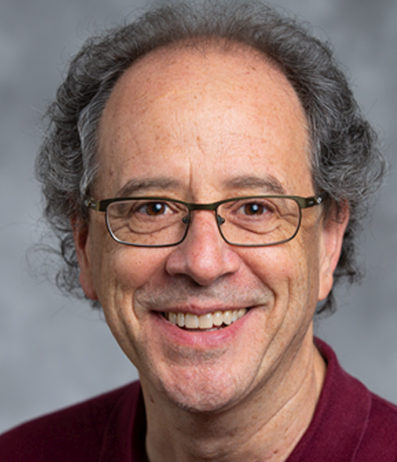Pre-Conference:
Re-Centering the College Counseling Center
Gary D. Glass, Ph.D.
Wednesday, June 11, 9:00am
Full day workshop, appx 5-6 CE’s
 This workshop will provide counseling center professionals with information and activities toward re-centering the work and the impact of the college counseling center against the backdrop of the current national landscape of college mental health. The goal of this workshop is to better equip counseling center professionals to reclaim the narrative of “college mental health” and to position the college counseling center to lead a necessary paradigm shift in how our work is understood, toward an impactful but more sustainable role of the college counseling center. We will review sample frameworks to guide your efforts, as well as various tools to help translate the clinical expertise of counseling center, defining the center as not simply a department that provides services, but one that provides necessary expertise. Integrating purposeful clinical services and strategic outreach and consultation, this workshop offers concepts and tools to move us from the uncentered and less grounded position we navigate in the current national landscape as we understand and address the mental health of students, faculty, staff, and families navigating the university or college experience.
This workshop will provide counseling center professionals with information and activities toward re-centering the work and the impact of the college counseling center against the backdrop of the current national landscape of college mental health. The goal of this workshop is to better equip counseling center professionals to reclaim the narrative of “college mental health” and to position the college counseling center to lead a necessary paradigm shift in how our work is understood, toward an impactful but more sustainable role of the college counseling center. We will review sample frameworks to guide your efforts, as well as various tools to help translate the clinical expertise of counseling center, defining the center as not simply a department that provides services, but one that provides necessary expertise. Integrating purposeful clinical services and strategic outreach and consultation, this workshop offers concepts and tools to move us from the uncentered and less grounded position we navigate in the current national landscape as we understand and address the mental health of students, faculty, staff, and families navigating the university or college experience.
Learning Objectives:
-
-
- Participants will be able to summarize how current college counseling center challenges emerged from the history and evolution of college mental health over the past century.
- Participants will be able to articulate 3 critical functions/roles of the college counseling center to the college or university setting.
- Participants will be able to list specific themes or issues on their campus where mental health and other endeavors specific to college settings often intersect.
- Participants will be able to generate at least 2 activities on their campus where counseling center collaboration supports the priorities of their institution mission (the broad academic mission).
- Participants will be able to identify Key Communities or Constituents that can play a role in advancing a counseling center’s narrative of campus mental health
-
Meet your Speaker
Gary D. Glass, Ph.D.
Gary D. Glass, PhD, is a Counseling Psychologist who has been working with college students and serving various campus communities for over 25 years, serving institutions of various sizes and settings. Committed to an interdisciplinary perspective, his professional identity extends beyond “clinician” to include Educator, and he incorporates skills and wisdoms from various disciplines. He has spent his entire career on college campuses, serving students and the broader campus community of faculty, staff, and students’ family members. While he values the individual clinical work he provides, perhaps Gary’s greatest passion is translating the impact of individual counseling into community level interventions that emphasize creating empathetic and supportive campus environments. He is an active member of the Association of University and College Counseling Center Outreach (AUCCCD), having served on the Board of Directors, and he was a founding member of the Association of University and College Counseling Center Outreach (AUCCCO), in addition to maintaining membership in the American College Counseling Association, presenting frequently at the conferences for all of these organizations, in addition to others.
Keynote:
Laughing Together: The Connection between Improv and Counseling
Chris Gethard
Thursday, June 12, 11:15am-12:45pm

Improv is performed in theaters all over the world – but before it was aimed at performance, it was developed as social work. Laughing Together takes all the joy, fun, and developments of modern improv and brings it back to the goals it had in the 1930s when it was developed by Sociologist Neva Boyd as a communication tool for inner city youth in Chicago. We’ll show you a number of games that both kids and adults have fun playing. What they might not realize is that each fun game has multiple goals inside it- goals that would be familiar to any counselor: increased comfort with public speaking, emotional resilience, the reduction of anxiety surrounding the making of decisions, picking up on non-verbal communication, and more.
Learning objectives
-
-
- Identify the similarities between improv and counseling
- List at least 3 potential strategies they could use in a counseling session
- Apply improv skills to their work in therapy and outreach
-
Meet your Speaker
Chris Gethard
 https://laughingtogether.org/
https://laughingtogether.org/
Chris Gethard is an American comedian, actor, and writer known for his raw, honest, and often vulnerable comedic style. He gained recognition through his work on The Chris Gethard Show, a cult-favorite public access and later cable talk show blending absurd comedy with heartfelt audience interaction.
Gethard is also known for his one-man off-Broadway show Career Suicide, which explores his struggles with mental health, and was later adapted into an HBO special. He has appeared in TV shows like Broad City and films like Don’t Think Twice. Beyond performing, he hosts the podcast Beautiful/Anonymous, where he takes anonymous calls from listeners, often discussing mental health, addiction, grief, and other personal challenges with empathy and wit. Through his work, Gethard has become a respected voice in mental health advocacy, using comedy as a tool to reduce stigma and promote open, honest dialogue.
